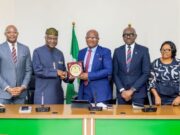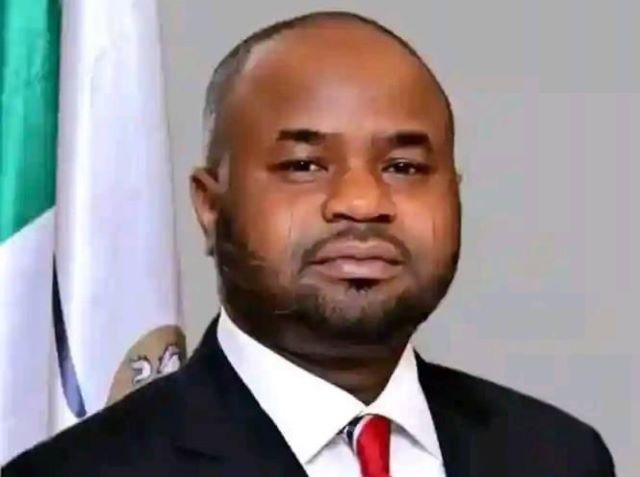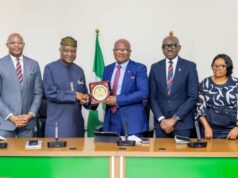The Federal Inland Revenue Service has called for stronger collaboration with the media to promote voluntary tax compliance among Nigerians, stressing that taxation is essential for national development.
It warned that without a deeper culture of citizen participation, tax enforcement alone would not deliver the country’s development goals.
Speaking at a one-day sensitisation programme titled “The Role of Media in Voluntary Tax Compliance” in Kaduna on Wednesday, the FIRS Executive Chairman, Zacch Adedeji, represented by his Technical Adviser on Broadcast Media, Arabinrin Aderonke, said the media remained a critical partner in educating citizens and shaping public perception about taxes.
“Taxes make it possible for hospitals to provide care, for our roads to be repaired, and for social services to reach those who need them most. They are not just government revenue; they are the foundation of growth in our nation,” Adedeji said.
He noted that despite the importance of taxation, many Nigerians still viewed paying taxes as a burden or something to avoid, rather than a civic duty that drives national progress.
According to him, beyond enforcement and penalties, the country needs “a culture of voluntary compliance where citizens willingly fulfil their civic duty because they understand the benefits and trust that their contributions will be used for the common good.”
The FIRS boss said the media had a key role to play in building this trust.
“When journalists simplify complex tax laws and explain procedures clearly, they empower citizens with knowledge.
“An informed citizen is more likely to comply with tax obligations because they can connect the dots between the taxes they pay and the services they receive,” he said.
He also commended investigative journalism for exposing mismanagement and misuse of public funds, stressing that accountability boosts public confidence in tax administration.
The programme, attended by journalists, tax professionals, and government representatives, explored ways to improve collaboration between tax authorities and the media through accurate reporting, transparency, and open communication.
The FIRS urged journalists to see themselves not only as reporters but as “educators, influencers, and watchdogs” who can inspire citizens to embrace their civic responsibility of paying taxes.
“Paying taxes is part of building our nation. The media has a special role in ensuring this contribution is understood, valued, and embraced by all,” he said.
In his paper, ‘Voluntary Tax Compliance: A Pathway to Sustainable Development in Nigeria,’ Dr Mohammed Adamu, Head of Kaduna 1 Emerging Tax Audit, emphasised that taxation remains the most reliable source of revenue for any government.
He defined voluntary compliance as the readiness of taxpayers to declare income, file returns, and pay taxes without enforcement action, stressing that it thrives where the tax system is perceived as fair and transparent.
According to him, voluntary compliance reduces enforcement costs, builds trust between the government and taxpayers, ensures steady revenue flow, and fosters patriotism.
“Tax revenues fund our roads, schools, hospitals, and security. A compliant taxpayer is a stakeholder in national progress,” Adamu said. He added that voluntary compliance also boosts investor confidence and reduces tax evasion.
In another presentation, ‘Additional Tips on Voluntary Tax Compliance, Senior Manager, Tax, Kaduna Government Business Office,’ Ishaku Ankuma, highlighted registration, proper record-keeping, timely filing of returns, prompt payment, and remittance of withholding taxes as essential elements.
He warned that failure to comply attracts heavy fines, interests, possible criminal charges, and damage to reputation, adding that tax compliance certificates are now prerequisites for many financial transactions.
The sensitisation ended with a charge to journalists to help demystify taxation, highlight its benefits, expose evasion, and shape public perception in favour of building a culture of compliance
It had earlier been reported that FIRS, during a stakeholder engagement forum in Lagos, called on large tax consultants to embrace the electronic invoicing system, saying it is key to boosting the country’s tax-to-GDP ratio by improving tax compliance, enhancing transparency, and curbing revenue losses.
According to Revenue Statistics in Africa 2023, Nigeria’s tax-to-GDP ratio stood at 10.6 per cent, indicating an improvement from 6.3 3 per cent in the previous year. The Federal Government has set a target of 18 per cent.
Highlighting the role of tax consultants in the adoption of the e-invoicing system, the Director, Competent Authority Department, FIRS, Sunday Okeowo, who was represented by Director of Field Operations Management at FIRS, Matthew Osanekwu, said they “partner with FIRS on the journey to digital transformation, embrace adoption and understanding of the e-invoicing concept, support clients/taxpayers in technological integration and implementation, provide continuous training and capacity building for clients, and advocate for compliance advisory.”
Osanekwu added, “Tax consultants must realise that change has come. FIRS is on a journey, and that journey is to become one of the most trusted and efficient tax systems in the world.”
Credit: punchng.com











































































